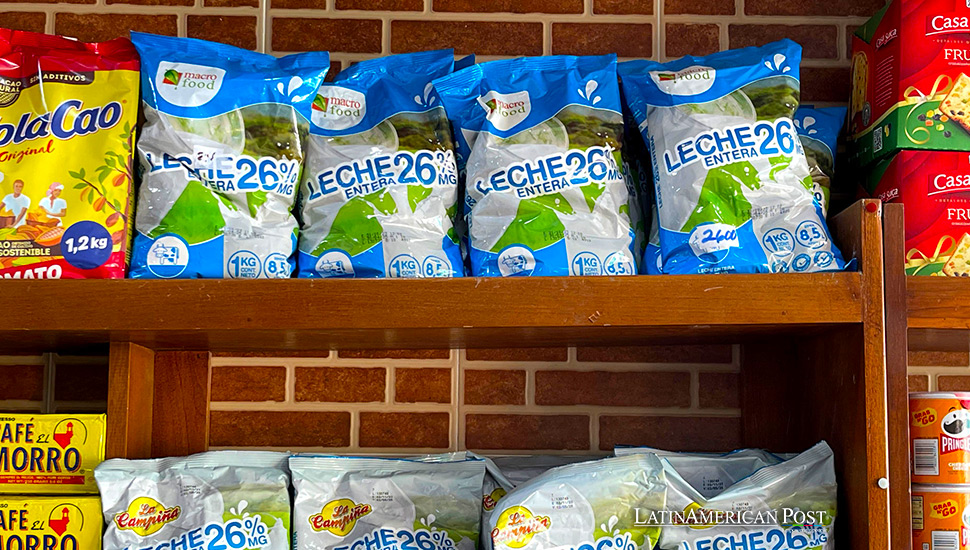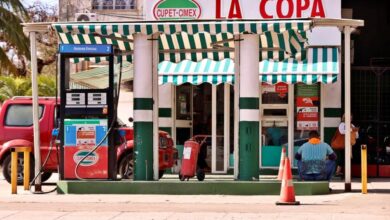Cuba’s Quest for Milk is a Reflection of Deepening Economic Crisis and International Solidarity

Facing a severe economic crisis, Cuba turns to the World Food Programme for assistance in securing powdered milk for its children, highlighting the challenges of maintaining its decades-old subsidies scheme and underscoring the need for global cooperation.
Cuba Seeks World Food Programme’s Assistance for Powdered Milk
In a stark indication of the escalating economic challenges confronting Cuba, the island nation has reached out to the World Food Programme (WFP) for assistance in procuring powdered milk, a staple in the Cuban diet, especially for children. This move, reported by the state-run media outlet CubaDebate, underscores the gravity of Cuba’s food security situation and the broader implications of its ongoing economic woes. A shipment of 375 tons of powdered milk from Brazil, facilitated by Cuba’s appeal to the WFP, is expected to arrive shortly, offering temporary relief and spotlighting the systemic issues plaguing the communist-run Caribbean island.
The need to secure external assistance for something as fundamental as milk for children is a sign of the deepening crisis. Cuba’s announcement in February about its struggle to bolster milk supplies as domestic production falters is not an isolated incident but the latest in a series of shortages that have strained the country’s subsidy system. Instituted by Fidel Castro in the aftermath of the 1959 revolution, the “ration book” system aimed to ensure that all Cubans had access to subsidized staples, including bread and milk. However, decades later, this system is unraveling amid an economic crisis that hampers the government’s ability to fulfill its commitments, leading to widespread food, fuel, and medicine shortages.
Unraveling of Cuba’s Subsidy System
The economic downturn in Cuba is attributed to a combination of factors, including the fallout from the COVID-19 pandemic, which severely impacted tourism, a significant source of revenue for the island, and the tightening of sanctions under former U.S. President Donald Trump’s administration. These sanctions have further restricted Cuba’s purchasing power on the global market, exacerbating the existing challenges.
Despite these obstacles, Cuba has managed to secure 500 tons of milk from the United States, Canada, and Brazil, taking advantage of exceptions that permit the sale of agricultural products. This development is a testament to the complexity of Cuba’s economic and political predicament, where geopolitical tensions intersect with urgent humanitarian needs.
The situation in Cuba reflects broader food security and economic stability issues that resonate across Latin America and the Caribbean. Many nations in the region grapple with similar challenges, albeit with different underlying causes and manifestations. From Venezuela’s hyperinflation and food shortages to Central America’s climate-induced agricultural disruptions, the struggle to ensure food security is a common thread uniting the region.
Cuba’s recourse to international assistance highlights the importance of global cooperation and solidarity in addressing food security. The World Food Programme’s involvement in facilitating the milk shipment from Brazil underscores the critical role that international organizations play in bridging the gap between need and supply, especially in times of crisis. Moreover, it raises questions about the sustainability of subsidy systems like Cuba’s “ration book” in the face of economic adversity and changing global dynamics.
As Cuba navigates its economic crisis, the need for comprehensive reforms and strategic partnerships becomes increasingly apparent. The country’s reliance on imports for necessities points to the urgency of revitalizing domestic agriculture and diversifying its economy to reduce vulnerability to external shocks. Additionally, the international community’s response to Cuba’s plight serves as a reminder of the interconnectedness of global markets and the potential for cooperation to mitigate the impacts of economic sanctions and pandemics.
Reflection and Opportunity: Unfolding Challenges in Latin America
While dire, the unfolding situation in Cuba also offers an opportunity for reflection on the broader challenges of economic management, food security, and international relations in Latin America and the Caribbean. It prompts a reevaluation of subsidy systems and their viability in the face of economic pressures and the role of sanctions in exacerbating humanitarian crises. Furthermore, it underscores the need for regional cooperation and dialogue to address shared challenges, from financial instability to climate change impacts on agriculture.
Also read: Global Coalition Rallies to Restore Peace in Haiti Amid Gang Crisis: A Latin American Perspective
Cuba’s appeal for assistance in securing powdered milk for its children is a poignant reminder of the economic and social challenges facing the island and the broader region. It highlights the critical need for international solidarity and cooperation in addressing food security, the importance of economic diversification and agricultural development, and the potential for regional and global partnerships to overcome adversity. As Cuba and its Latin American neighbors continue to navigate these complex issues, the international community’s support and engagement will be crucial in forging pathways toward stability, sustainability, and prosperity.




